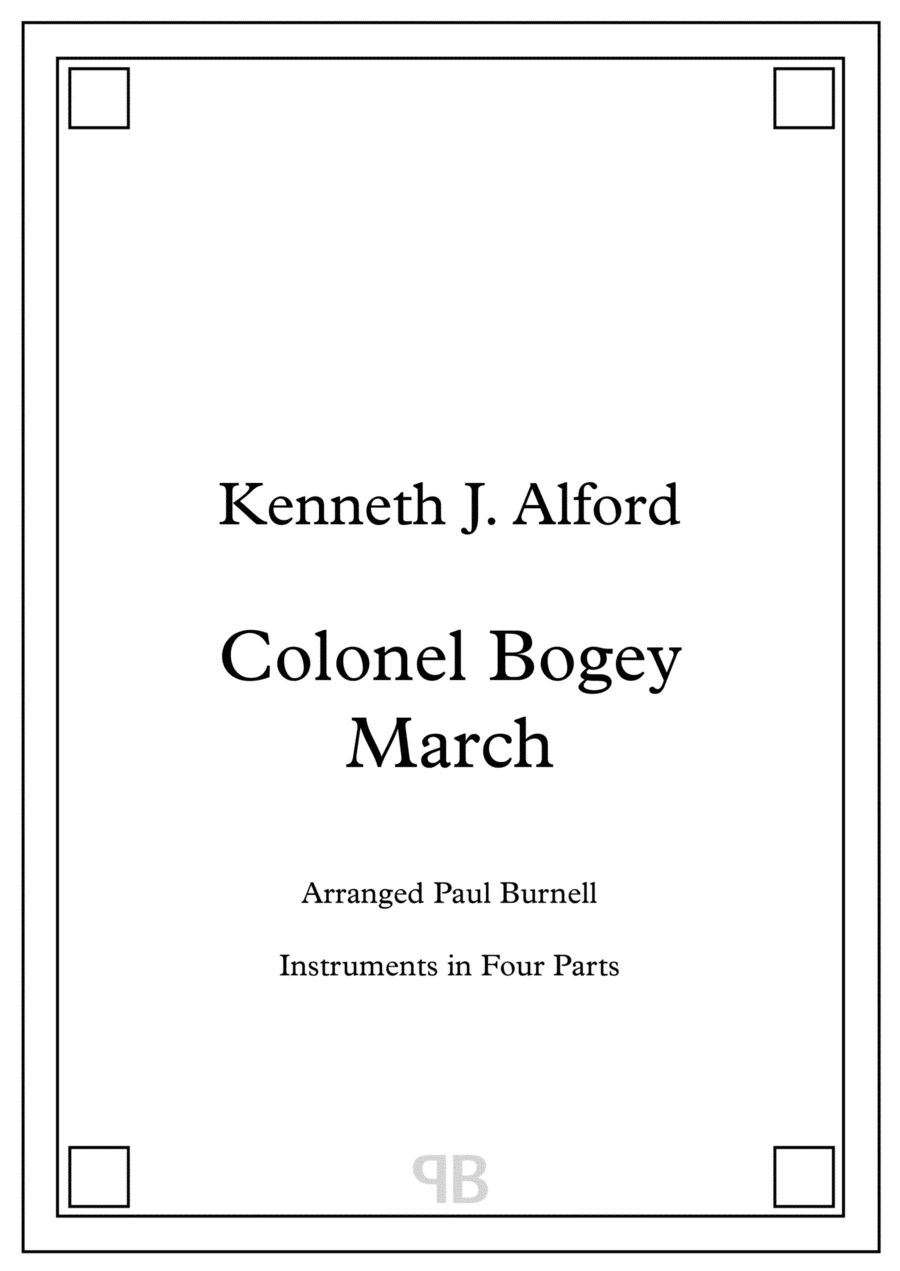Small Ensemble - Level 3 - Digital Download SKU: A0.835894 Composed by Kenneth J. Alford. Arranged by Paul Burnell. 20th Century. Score and parts. 37 pages. Paul Burnell #6612805. Published by Paul Burnell (A0.835894). Colonel Bogey March, Kenneth J. Alford, arranged by Paul Burnell for instruments in four partsDownload comprises both score and partsDuration 3:20Score in CThe arrangement is suitable for multiple quartet combinations with parts available (and potential instrumentations suggested) as follows:Part 1: C, Eb (Flute, Oboe, Alto Recorder, Eb Clarinet, Violin 1)Part 2: C, Bb, G (Alto Flute, Oboe, Tenor Recorder, Bb Clarinet, Violin 2)Part 3: C, Bb, Eb, F (Bb Clarinet, Bass Recorder, Alto Saxophone, Horn in F, Violin 3, Viola)Part 4: C, Bb, F (Bassoon, Great bass Recorder, Tenor Saxophone, Horn in F, 'Cello)Part 4 may be played an octave lower than written - using the 'Bass Clef up 8' part.Any other appropriate instruments, even if not suggested above, may play.The key of this arrangement has been transposed from that of the original composition.Play cue-sized notes in brackets where the main notes are out of range.In part 4, bars 37-54, the upper octave may be played where the lower notes are out of range or impractical.Programme note:The 'Colonel Bogey March' was composed in 1914 by Lieutenant F. J. Ricketts (1881 - 1945) a British Army bandmaster who later became the director of music for the Royal Marines at Plymouth. Since service personnel were, at that time, not encouraged to have professional lives outside the armed forces, F. J. Ricketts published his compositions under the pseudonym Kenneth Alford. Supposedly, the tune was inspired by a British military officer who preferred to whistle a descending minor third rather than shout Fore! when playing golf. It is this descending interval that begins each line of the melody. English composer Malcolm Arnold added a counter-march, which he titled 'The River Kwai March' for the 1957 film 'The Bridge on the River Kwai'. On account of the movie the 'Colonel Bogey March' is often incorrectly credited as the 'River Kwai March'.
